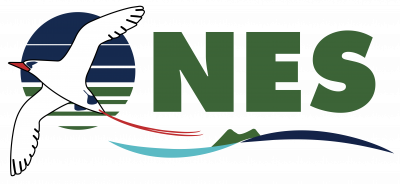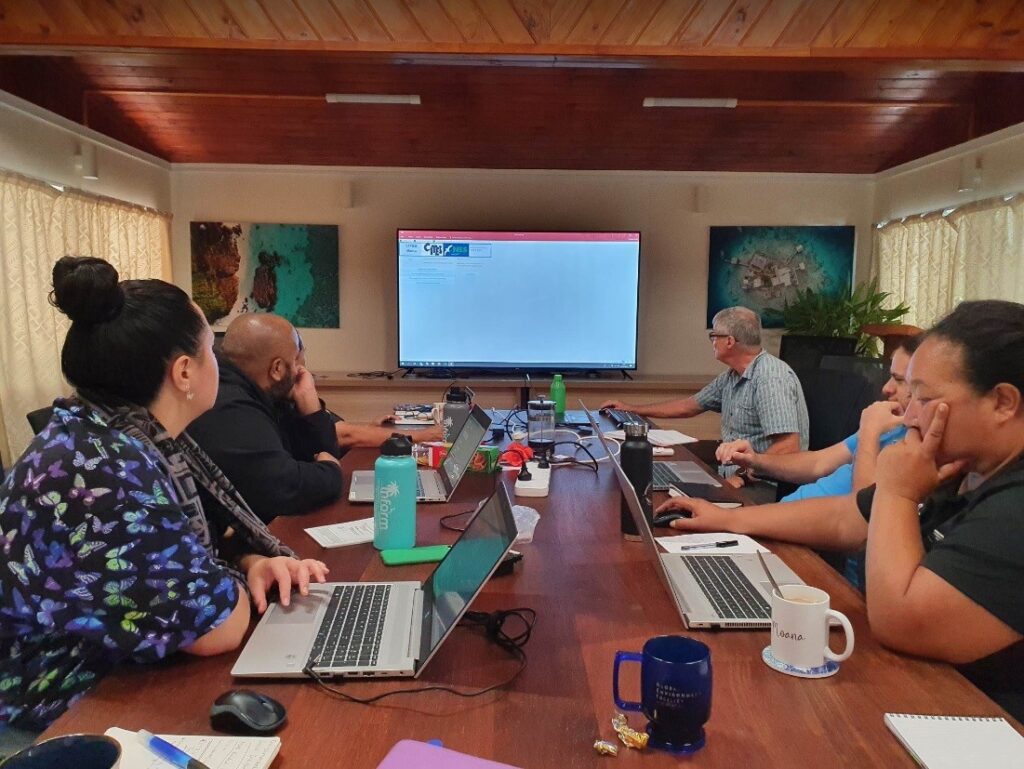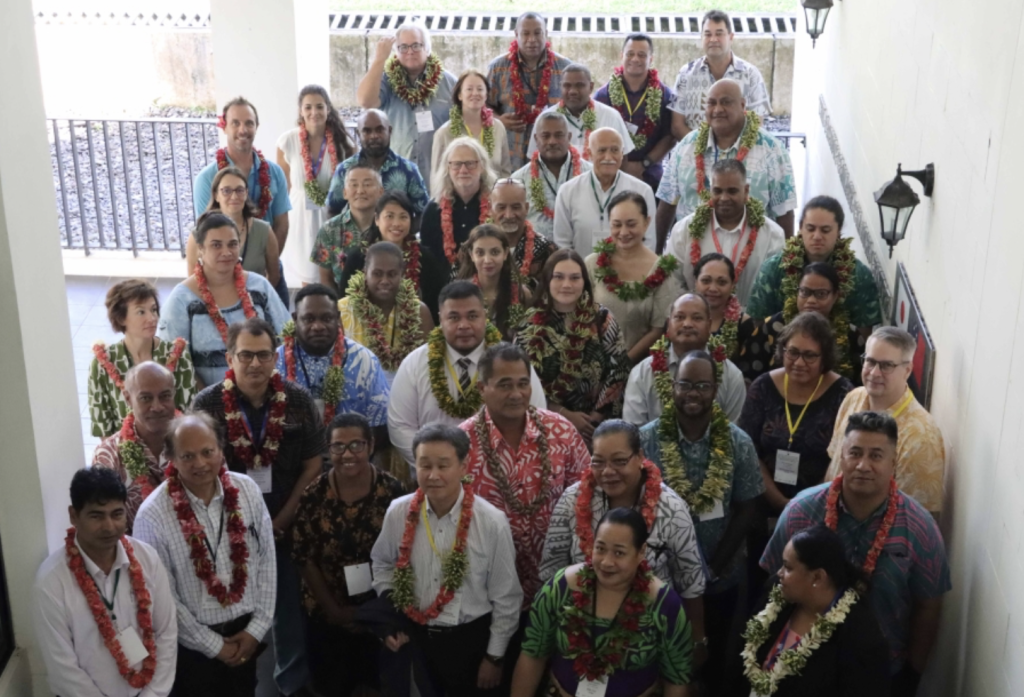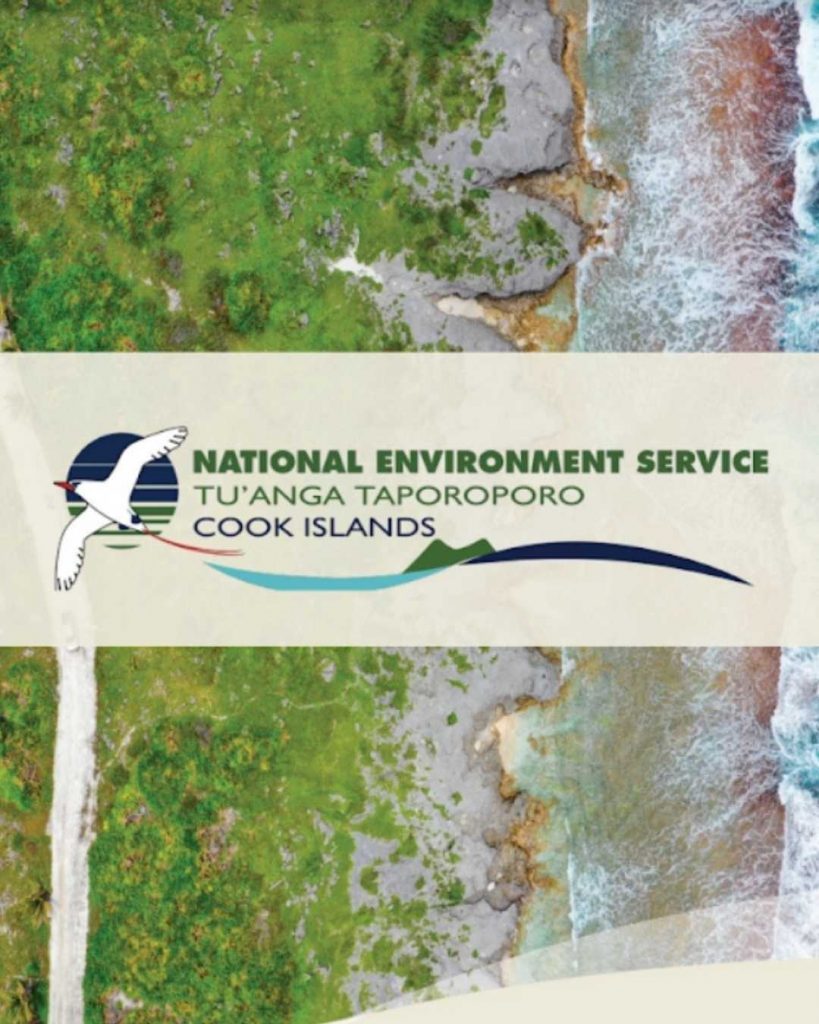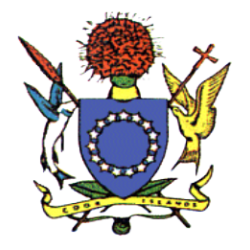Introducing an end-to-end digital system for recording of permits for Movement or Trade in Endangered Species (CITES) is a breakthrough initiative by the NES staff to streamline and digitalise information collection. Training on the new system was conducted by Lindsay Gault, Data Management Advisor to NES.
The public will be able fill in on-line forms to request a permit from the NES website once this new system is launched in April 2023. The sample items will then need to be brought to the NES office for identification of the species and measurement of the weight of the samples.
The on-line forms allow capture of vital metrics on the export of species from the Cook Islands which will allow reporting information at the click of a button. The Convention of International Trade in Endangered Species of Wild Fauna and Flora (CITES) is an international agreement between member countries to ensure the international trade of wild animals and plants does not threaten their survival. High trade activity can lead to heavy depletion of the species’ population and elevates the level of extinction. The trade can involve live animals and plants, food products, wildlife products and certain medicines.
Under Section 55 of The Environment Act 2003 NES has an obligation for Protection of species. In order to monitor the pressure on species from export and trade, NES adopts the international standards for CITES reporting. This mechanism also allows us to provide notifications to major Pacific neighbours, especially Australia and New Zealand who are full members of the convention. Our voluntary compliance contributes to global environmental protection as well as working towards our goal of protecting biodiversity.
Our team of CITES Signatories are preparing the ground for introduction of a new and streamlined process
